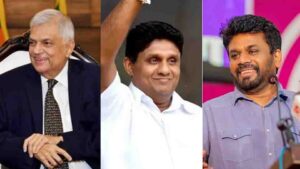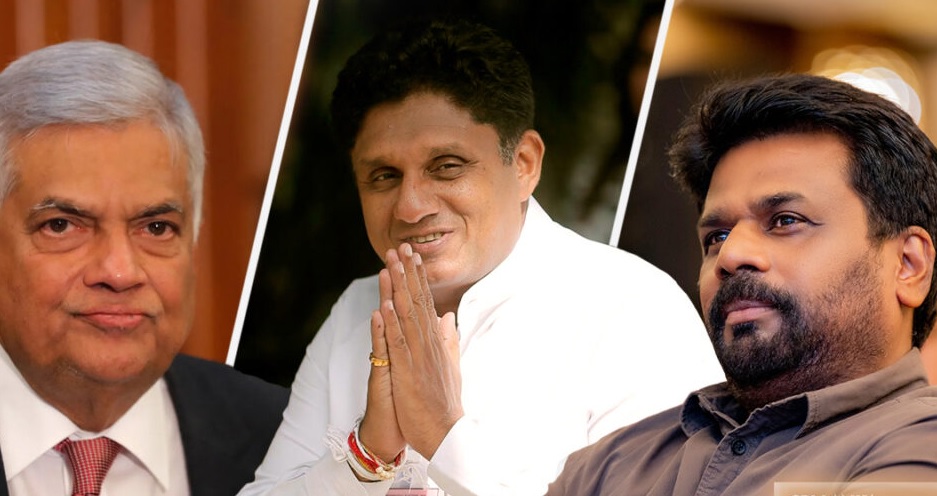The Traits of Transformative Leaders: What Sri Lankan Voters Should Seek in Their Next President
As Sri Lanka approaches a pivotal election, the need for a leader who can steer the country through its myriad challenges has never been greater. The nation stands at a crossroads, with economic recovery, social stability, and governance reform at the forefront of public discourse. In such times, it’s instructive to look at the qualities that have defined transformative leaders around the world—leaders who not only managed crises but also set their countries on a path to lasting prosperity. The stories of Lee Kuan Yew, Mahathir Mohamad, Nelson Mandela, Franklin D. Roosevelt, and others offer valuable lessons that Sri Lankan voters should consider when choosing their next president.
Visionary Leadership: Seeing Beyond the Horizon
One of the most critical traits of a transformative leader is visionary leadership. Lee Kuan Yew, the founding father of modern Singapore, exemplified this. When he took office, Singapore was a small, resource-poor island with no clear path to success. However, Lee envisioned a global city-state that could thrive on its strategic location, human capital, and efficient governance. His vision transformed Singapore into one of the world’s most prosperous nations.
Similarly, Franklin D. Roosevelt guided the United States through the Great Depression and World War II, not just by addressing immediate crises, but by laying the groundwork for long-term economic stability through initiatives like the New Deal. Sri Lanka needs a leader with a clear vision for the future—one who can see beyond the immediate challenges and craft a strategy that will lead the country to sustainable development.
Strong Will and Determination: The Courage to Lead
Transformative leaders are often marked by their strong will and determination. Mahathir Mohamad, who served as Malaysia’s Prime Minister for over two decades, was known for his unyielding resolve in implementing policies that spurred Malaysia’s rapid industrialization and modernization. Despite facing significant opposition, Mahathir’s determination ensured that Malaysia became one of the most dynamic economies in Asia.
This same quality was evident in Margaret Thatcher, the “Iron Lady” of the United Kingdom, who implemented tough economic reforms that reshaped Britain’s economy. Sri Lanka’s next president must possess a similar strength of character, with the resolve to implement necessary but potentially unpopular reforms to revive the economy and strengthen governance.
Pragmatism: Focus on What Works
A hallmark of successful leadership is pragmatism—the ability to adapt and implement policies that work, regardless of ideological constraints. Deng Xiaoping, the architect of modern China’s economic reforms, famously declared that “it doesn’t matter whether a cat is black or white, as long as it catches mice.” His pragmatic approach to opening China’s economy to the world lifted hundreds of millions out of poverty and transformed China into a global powerhouse.
In Sri Lanka, where the economic challenges are complex and multifaceted, a leader with a pragmatic approach is essential. This means focusing on effective solutions rather than being bogged down by ideological debates, and being willing to adapt policies as circumstances change.
Integrity and Accountability: Building Trust
Transformative leaders are often those who are trusted by their people, a trust built on integrity and accountability. Nelson Mandela is perhaps the most iconic example of this. After spending 27 years in prison, Mandela emerged not with a desire for revenge, but with a commitment to reconciliation and nation-building in South Africa. His integrity earned him the respect and loyalty of both his supporters and former adversaries.
Lee Kuan Yew also built a reputation for incorruptibility, insisting on clean governance as a cornerstone of Singapore’s success. For Sri Lanka, a leader who is committed to integrity and transparency is crucial, especially in a political landscape where corruption has often undermined public trust in government institutions.
Resilience: Navigating Crises
The ability to remain resilient in the face of adversity is another key trait of effective leaders. Park Chung-hee of South Korea led his country through a period of rapid industrialization despite enormous challenges, including political instability and threats from North Korea. His resilience in pursuing economic reforms laid the foundation for South Korea’s emergence as a major global economy.
Similarly, Jawaharlal Nehru navigated India through its early years of independence, setting the stage for its future as a secular, democratic nation despite the immense challenges of partition and poverty. As Sri Lanka grapples with economic recovery and social cohesion, a resilient leader who can navigate through crises with determination and clear-headedness will be essential.
Strategic Thinking: Planning for the Long Term
Transformative leaders think strategically, planning for the long-term rather than just addressing immediate issues. Mustafa Kemal Atatürk transformed Turkey into a modern, secular state by implementing a series of radical reforms that were strategically aimed at positioning Turkey as a progressive nation in the international arena.
Sri Lanka needs a president who can think beyond short-term electoral gains and focus on long-term strategies that will benefit the country for generations to come.
:max_bytes(150000):strip_icc()/Ataturk-5c6e1105c9e77c00018ccb0d.jpg)
The Path Forward for Sri Lanka
As Sri Lankans head to the polls, it is imperative that voters look for a leader who embodies these traits—visionary leadership, strong will, pragmatism, integrity, resilience, and strategic thinking. These are the qualities that have defined leaders who changed the course of their nations. Sri Lanka’s future depends on electing a president who not only understands the gravity of the current challenges but also has the capacity to transform the country into a prosperous and stable nation. In this critical moment, Sri Lanka needs a leader who can do more than promise change—they must be able to deliver it. More Importantly the Sri Lannkan voter needs to select which one of the candidates fits best to the discerptions above of a visionary leader who could get the job done.








